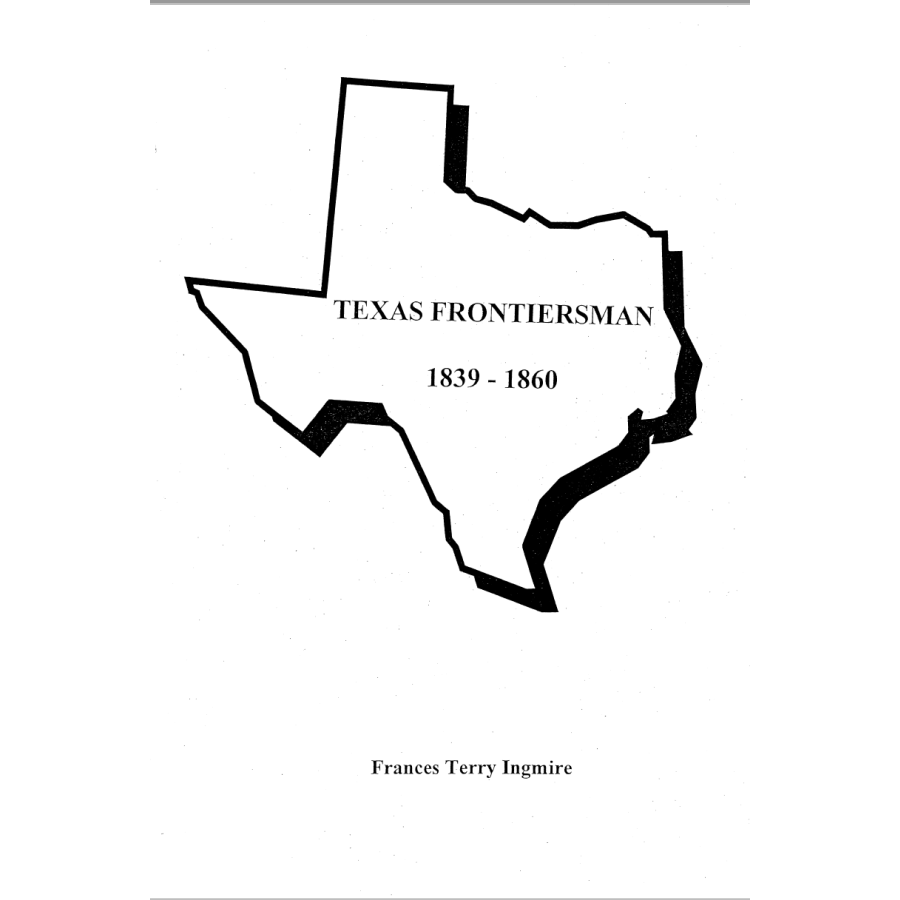Texas Frontiersmen, 1839-1860
Couldn't load pickup availability
This volume titled Texas Frontiersman is an alphabetical listing of those men from all over the State of Texas who were ready for the 'call' to go and defend their homes and homeland. This was the system used for defense all over the America even before the United States were established. The militia system was a system whereby private citizens would be enlisted for military service on a needed basis. Each person in a community or county could be called upon for service as the needs arose. This group is called by various names, i.e. militia, home guard or even in the case of Texas, the Indian fighters.
In the eastern states, each male between sixteen and forty-five was subject for a muster call six times a year. The vast majority of these times were spent in drilling, practicing their shooting skills and marching. It is from these 'muster calls' that a great civilian gathering was to occur. The women and children would go along. Sometimes, they would take an extra horse, cow or gun for trade, swap or sell. A carnival air developed. The shooting practice turned into a 'turkey shoot'.
When the safety of the community was threatened, then the men turned out to fight as needed. They normally volunteered to serve for three months at a time and the pay for a private was in the neighborhood of $20.00 to $25.00 for the three months time. If the money was not available to pay the men for their service, then land was often given in lieu of the money. This form of military service was used until the Mexican War. During that war, many of the soldiers had to pay for their own passage to Mexico, pay for their food and even up-keep.
The officers of the Militia were appointed by the county government in power at the time. Their minutes will reflect their appointments. The Captains of each company were usually the most powerful man in the area, and normally, the wealthiest. Their rank was often inherited by their eldest son, although, this was not a law, it happened frequently.
Frances T. Ingmire
8.5" x 11", full name index, 108 pp.
ISBN: 9780788473920
101E-FI0459
